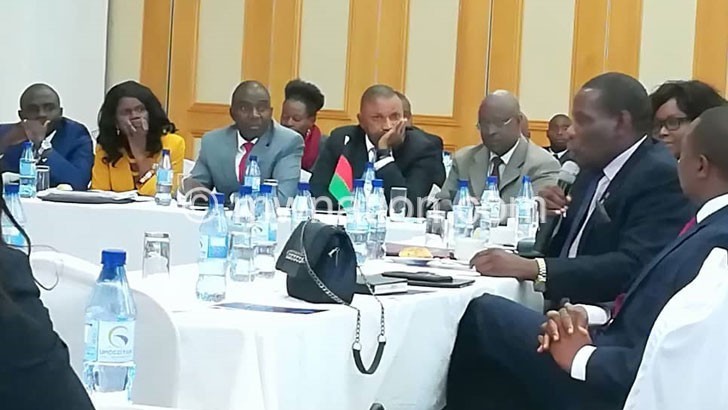Businesses wary Of new taxes
Malawi Confederation of Chambers of Commerce and Industry (MCCCI) says businesses do not expect Treasury to increase or introduce new taxes in the 2019/20 National Budget because firms cannot absorb an extra burden.
In his presentation at the 2019/20 pre-budget consultation meeting in Blantyre on Friday, MCCCI head of real sector and macroeconomic policy Hope Chavula said the chamber believes, the tax system should support economic growth and not disrupt business activities.

“Government should plan to obtain more revenue from the introduction of new businesses and growth instead of existing ones and not increase tax. The private sector needs fiscal space to develop such as tax breaks as incentives under specific programmes.
“Government should improve tax revenues through investing in the integrated tax administration system and introduce incentives to encourage investments in rural areas, reduce corporate tax from 30 percent to 20 percent to encourage investments and also reduce exercise taxes to curb smuggling and remove 10 percent exercise tax on data and voice to spur innovative economic growth,” he said.
Institute of Chartered Accountants in Malawi (Icam) chief executive officer Francis Chinjoka Gondwe said they want policies that promote domestic revenue collection with less reliance on aid and grants, embracing the aspirations of Sustainable Development Goal (SDGS) 17.
He said: “We propose that government brings into the tax net government agencies that are able to make surpluses.
“These agencies include Malawi Energy Regulatory Authority and the Malawi Communications Regulatory Authority.
“Government can also increase the tax base by identifying more taxpayers and re-introduce a Taxpayer Identification Survey Programme as well as the Tax Amnesty [Voluntary Compliance Window] for a maximum of 12 months.”
Minister of Finance, Economic Planning and Development Joseph Mwanamvekha said there is need to ensure balance to reduce budget deficit.
“We need to ensure the budget is implemented properly and it is balanced,” he said.
While revenue performance in the first half of 2018/19 fiscal year was impressive, Ministry of Finance, Economic Planning and Development spokesperson Davis Sado said performance in the second half was poor. Treasury figures indicate that at mid-year, domestic revenue outturn was K514.8 billion, representing an over-performance of K18.6 billion with tax revenue over-performing by K22.4 billion while non-tax revenue fell short of the target.





